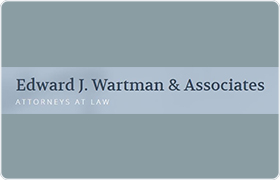Gary Reorganization Lawyer, Indiana
Sponsored Law Firm
-
 x
x

Click For More Info:
-
Edward J. Wartman & Associates
516 East 86th Avenue Merrillville, IN 46410» view mapBankruptcy & Debt Law Highest Quality of Legal Services
At Edward J. Wartman & Associates Our experience runs deep and our successes are numerous, yet our motivation is simple.
219-791-1520
Warning! No lawyers found in this specified area.
 Edward Wartman Merrillville, IN
Edward Wartman Merrillville, IN
